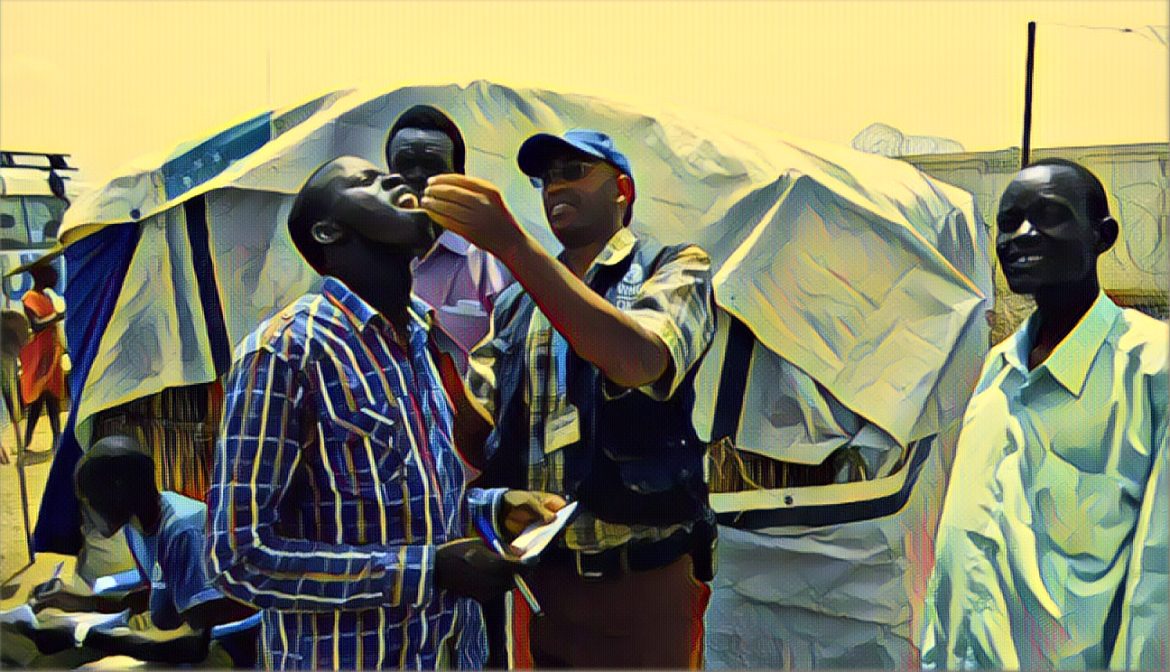Zimbabwe is set to begin a large-scale cholera vaccination campaign today, targeting over 800,000 people in hotspots across the country. The campaign is part of the government’s efforts to contain the outbreak that has killed more than 400 people and infected over 21,000 since November 2023.
The campaign will be launched in the Kuwadzana suburb in Harare, where the first cases of the outbreak were reported. Other areas that will receive the vaccine include Glen View, Budiriro, Highfield, and Chitungwiza in Harare province, as well as Chiredzi and Buhera in Masvingo and Manicaland provinces respectively.
The vaccine doses were donated by the International Coordinating Group (ICG) on Vaccine Provision, with support from the World Health Organization (WHO) and UNICEF. The vaccines were funded by Gavi, the Vaccine Alliance through the ICG.
Health and Child Care Minister Dr. Douglas Mombeshora said the vaccines had arrived at an opportune moment as the country had been experiencing a surge in cases due to population movements during the festive season and the onset of the rainy season.
“This is a preventable disease and, sadly, we have lost lives to it. Today we are here to receive vaccines which come on the side of prevention,” he said.
“I would like to urge all Zimbabweans to take this vaccine seriously because it helps and it will save lives. It is not new; we have used it before.”
Dr Mombeshora said the first batch of 294,000 doses of the oral cholera vaccine (OCV) had already been dispatched to Masvingo in preparation for the rollout.
The cholera vaccine is effective in preventing cholera and provides about 85 percent protection for the first six months after vaccination. When enough of the population is immunized, it may protect those who have not been immunized.
The WHO recommends the use of the OCV in combination with other measures among those at high risk.
Dr Mombeshora said the government was also putting in place a lot of measures on the preventive side to try and make sure that people have access to clean and safe water in both rural and urban areas.
“The government will continue to put more resources and effort to make sure that we prevent these diseases. We are also embarking on a clean-up campaign in Harare which will be rolled out in all cities,” he added.
The government has a target of drilling 35,000 boreholes in all the country’s villages so that people can use the water to engage in horticulture and sell excess produce. To date, over 3,000 boreholes have been drilled and some communities are already getting clean water and have profitable village business units.
WHO representative to Zimbabwe Dr Jean Marie Dangou said a collaborative approach was needed to win the fight against cholera.
“WHO and UNICEF combined efforts have ensured swift vaccine deployment, improved knowledge on cholera prevention measures, and strengthened healthcare systems in affected communities. But the fight against this deadly disease demands a united front. We urge all partners from donors, non-governmental organizations, civil society, and the private sector leaders and individuals, to step forward and join this crucial crusade. By mobilizing resources and expertise, we cannot only safeguard the progress made but ultimately dismantle the conditions that enable cholera to thrive,” he said.
Dr Dangou said the WHO was committed to protecting lives and safeguarding the health of the nation.
While the WHO will guide the vaccination process, UNICEF will offer technical and financial support to the roll-out of the campaign across all provinces.
UNICEF country representative Dr. Tajudeen Oyewale said they have been supporting the response across the various pillars including coordination, case management, and water, sanitation, and hygiene (WASH), among others.
“For the OCV campaign, UNICEF has provided technical support for the application to the ICG while the vaccines are being delivered through the UNICEF Supply Division. In preparation for the campaign, UNICEF has supported the mobilization activities in Masvingo Province with focus group discussions with communities underway in collaboration with Apostolic Women Empowerment Trust (AWET),” he said.
The vaccination campaign is expected to last for two weeks and will eventually cover 29 of the hardest-hit districts with 2.3 million vaccine doses.
Zimbabwe has been battling cholera outbreaks since 2008 when the disease claimed over 4,000 lives and infected nearly 100,000 people. The current outbreak is the worst since then and has been declared a national emergency by the government.
However, there is hope that the vaccination campaign, along with other preventive measures, will help curb the spread of the disease and save lives.
Source: The Herald


